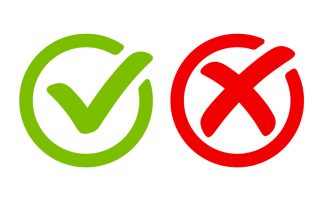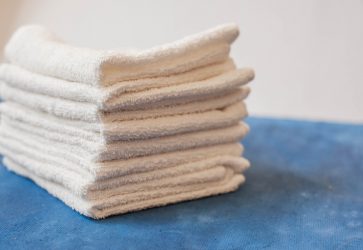In 2015, credit monitoring company, Experian revealed they had been hacked.
A few days ago, it was Quest Diagnostics; a medical lab testing company.
These events are scary. And it makes you wonder if your information is safe anymore.
Unfortunately, hackers and scammers like to target seniors.
While there may not be much that we can do to prevent hackers from hacking the companies we do business with, there are simple rules you can follow to keep your information secure
In today’s post, I will share seven rules that will make your information less accessible to hackers.
How to keep your information secure – 7 rules to make your information less accessible
Use passwords that are hard to guess
A survey conducted by the UK National Cybersecurity Center reported that “123456” was the most common password of accounts that had been breached in 2018.
In the same survey, they found that people commonly used words like “password” and “qwerty” (for the QWERTY layout of universal keyboards) as passwords.
The lesson here: Most people set passwords that are easy to break into.
And it is understandable.
After all, you don’t want to forget your password and have to reset it every time.
However, this very train of thought is what is why so many accounts are hacked each year.
If you use social media and online banking services, it is important that you set passwords that are hard to guess.
In general:
- Don’t use your first or last name
- Use a combination of letters (upper and lower case), numbers and symbols for your passwords
- Whatever you do, resist the temptation to use “password” as your password.
Change your passwords frequently
You can make it a rule to change a password every 3-6 months.
In fact, if you work with certain institutions, changing your passwords every 90 days is a requirement.
Even if you don’t work for anyone right now, changing your password frequently will make it harder for it to be guessed.
Use double authentication features
Several online services now have double authentication features that require you to establish your identity whenever you sign in from a new device or a new internet connection.
For instance, with Gmail’s double authentication system, when you try to sign in to your email from an unrecognized device, you will receive a text message or call that will ask you if you are really signing into your account.
Once you are able to verify that you’re indeed the one signing into your account, you will gain access to your email.
So add an extra layer of security with double authentication.
Erase browsing history on public computers
If you ever use an public computer to sign into your email or banking account, make sure you erase your browsing history after you have signed out of your accounts.
Certain internet browsers like Google Chrome will save password information for websites you have visited and signed into.
If someone uses the same computer after you and they go to those websites, they could very easily sign into your accounts because the password information is saved in the browser.
Limit your use of Wifi in public locations
Using free Wifi in public locations is another way you can expose your passwords to hackers.
Yes, I am aware of the lure of free Wifi at your local coffee shop or at the airport.
However, an experienced techie can easily scan the passwords of everyone who is using that particular newtwork and use it for dubious activities.
So, as much as possible, avoid logging into to free Wifi in public spaces.
Be careful what you put on social media
As fun as social media networks are designed to be, there are bad people who use it to glean information they can use to hack you.
So it is important that you don’t put everything about yourself on social media.
One of the ways people can use information from social media to hack you is through those “password answers” you sometimes have to give when you create an account online.
For instance, one of the most common questions is “What is your mother’s maiden name?”
If this information is freely available via social media, a hacker could use it.
Never give your password to anybody you don’t trust.
A recent scam has been people calling pretending to be your bank and then requesting for sensitive information like your social security number or debit card pin.
Most banks clearly state that they will never call you to request this information.
Thus, there is a 99.9% chance that the person on the other line asking for this information is looking to scam or hack you.
Don’t fall for it.
Keeping your information secure is challenging in an era of data breaches.
But following these simple rules will help you do just that.
If you found this post helpful, make sure to share it with someone else who needs to keep their information secure.








